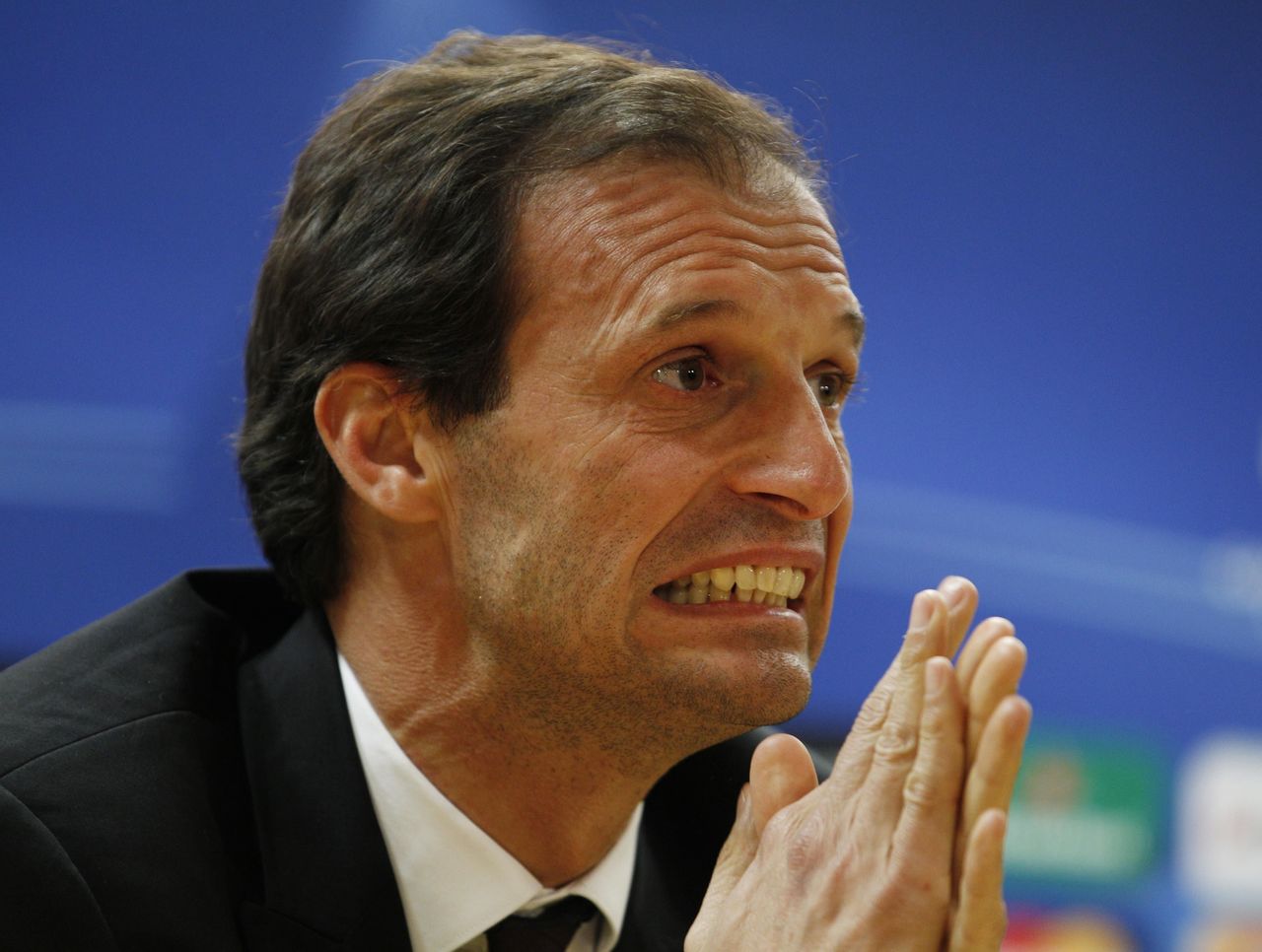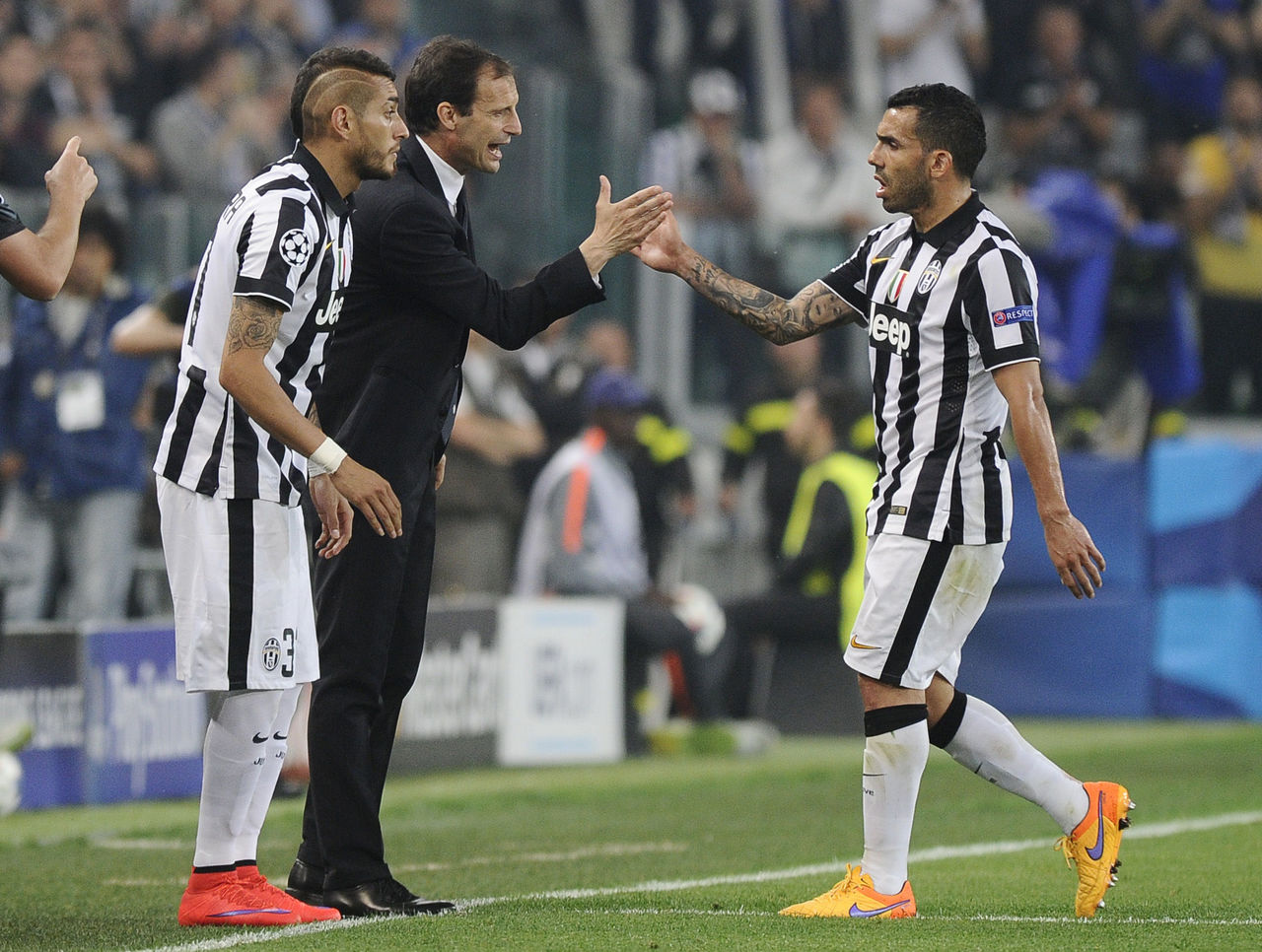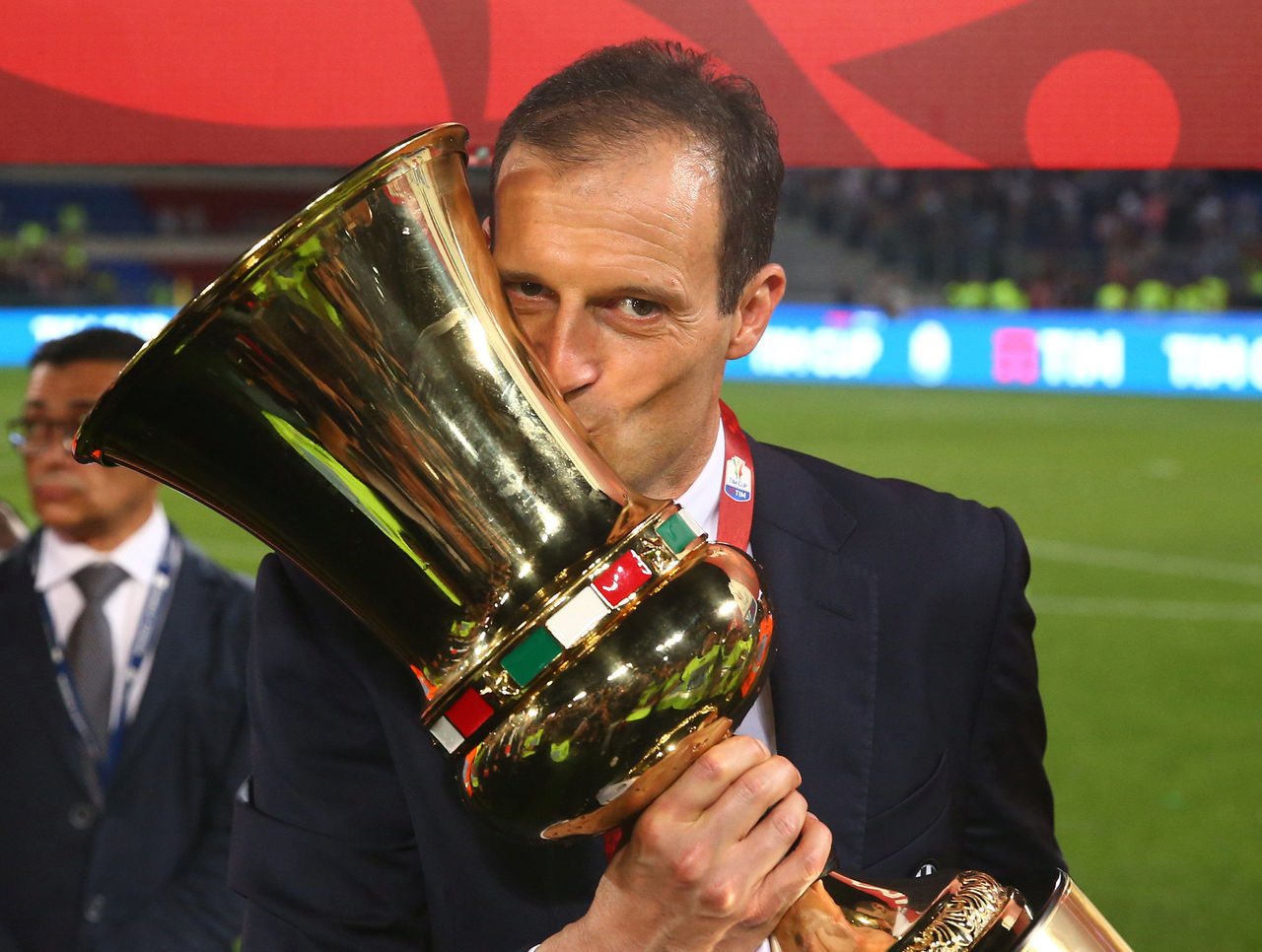How much-maligned Allegri proved critics wrong
Three years ago, fans pelted the car carrying Massimiliano Allegri into Juventus' headquarters. The welcome was far from charitable. Eggs and spit were his greeting gifts. Allegri, tainted by his firing at AC Milan, was considered a less-than-ideal replacement for Antonio Conte, who had black and white in his veins.
Winning, as it always does, changed minds. Over the intervening months and years, Allegri has led Juventus to three consecutive double-winning campaigns. With a victory over Real Madrid in Saturday's Champions League final, he could do three better than Conte did by claiming an eighth honour with the Bianconeri and a historic treble.
To get to this point required lots of patience and the willingness to learn from past mistakes.
Trial by fire

Allegri's first experience in charge of a big club did not end well. Under his watch, the Rossoneri blew a chance to win consecutive Scudetti in 2012 as a result of poor squad management and questionable tactics. They led for large parts of the campaign, only to lose the race to Juventus.
Although Milan won Serie A during his first season at the club, Allegri had a lousy record against Italy's heavyweights and often rushed his players back from injury. He was unable to correct his players' habitual failure on set pieces, and favoured slower midfield destroyers over creative types like Andrea Pirlo, whose departure was facilitated by Allegri's preference for Mark van Bommel. The decision to play an unfit Thiago Silva before a crucial Champions League match against Barcelona also backfired, as the Brazilian couldn't recover in time for the big fixture, which Milan eventually lost.
In an apparent move to appease Silvio Berlusconi's calls to play with two strikers, Allegri stuck to a narrow 4-3-1-2 formation that looked far too one-dimensional. Milan nearly blew a 4-0 aggregate lead against Arsenal, losing 3-0 in the second leg at the Emirates. It was at that point, according to former player Gianluca Zambrotta, that Allegri had lost the dressing room.
Allegri wasn't to blame for all of Milan's ills. As recent years proved, the manager wasn't the biggest of problems at the club. With Zlatan Ibrahimovic and Silva sold to Paris Saint-Germain, Allegri still guided a reduced squad to the Champions League in 2012-13.
A 4-3 loss to Sassuolo in January 2014 was his last match in charge of Milan, and many wondered if he'd ever coach a big club again.
Building on Conte's success

Taking over a team which had just completed a record 102-point season, Allegri couldn't get the praise he may have deserved. Even though he led Juventus to another championship, a record 10th Coppa Italia, and the Champions League final in May 2015, the common accusation was that Allegri did it with Conte's team. Carlos Tevez scored 29 goals in all competitions, and Paul Pogba, Arturo Vidal, and Pirlo dominated the midfield.
Allegri didn't dare tinker with the 3-5-2 formation that Conte concocted. It continued to bring success, so there was no need to change.
The 2015-16 campaign marked the beginning of Allegri's revolution. Out went Conte's disciples, including Tevez, Vidal, and Pirlo, and in came Mario Mandzukic, Paulo Dybala, Sami Khedira, Alex Sandro, and Juan Cuadrado. Although the season began in chaos, with the Bianconeri collecting just five points from their first six Serie A matches, they recovered to become the first Italian club to win back-to-back domestic doubles.
In fact, in his first two seasons, Allegri achieved more than Conte did in the cup competitions.
During these nine months, Allegri showed he had learned from his errors at Milan. He alternated between a back-three and a back-four and rotated his squad to great effect, gradually integrating Dybala into the team to avoid any undue pressure on the €32-million signing. The Argentine scored 19 goals in Serie A that year, and showed he was in fact a bargain.
"Allegri inherited a palace from Conte and, with patience, restructured it, so much so that it is now very different from what it was, while keeping the same guidelines," Alessandro Bocci wrote in La Gazzetta dello Sport. "Because Allegri didn't throw away anything. He recovered the furniture and gave it a different tone."
Leading Juventus to history

Allegri's most pronounced changes came this season. Pogba was sold for a record fee, and Miralem Pjanic and Gonzalo Higuain arrived with the clear objective of winning the Champions League. The pressure was on, and Allegri delivered.
Of course, any manager would love to have the talent on the pitch and on the bench that Allegri has been afforded. But it took some time to figure out. A 2-1 loss to Fiorentina in January forced Allegri to rethink his team's shape, and he took a risk by fielding five attacking players in a 4-2-3-1 formation. With Higuain, Cuadrado, Dybala, Mandzukic, and Pjanic all on the field, there was a feeling Juventus would lack balance, but the opposite was true. Every player bought into his new role, specifically Mandzukic, who gave up scoring duty to become a left-winger. The Croatian's tireless effort, particularly defensively, has been crucial to Juventus' success this season.
"We had become too conservative and we thought we could win matches with the minimum of fuss," Allegri told a press conference in February. "In fact, our aim, in order to improve, is to set the bar even higher, in terms of our football, our intensity, how well and quickly we move the ball, and how we defend."
It has all changed for the better. Pjanic's reinvention as a deep-lying playmaker took some time, but he's now displayed the range of passing that made Pirlo such a crucial player in Juventus' system. Dybala's contributions in a No. 10 role also helped unlock defences, and the four-man backline stymied Barcelona. A variation of that system then proceeded to lock down, for the most part, a free-scoring AS Monaco side.
Allegri's Juventus has even showed it is capable of switching formations on the run, going from three at the back to four or five when out of possession. Dani Alves' move to the right wing provided more width and more goals, with huge efforts coming against Monaco, Atalanta, and Lazio in April and May.
"The quality and intelligence of my players make my choices easier," Allegri said after Juventus dispatched Monaco.
Allegri's put his players in a position to thrive, highlighting their greatest attributes in this new formation. Mandzukic's tireless running now matters, and Pjanic's passing has a greater influence.
And the manager doesn't look for any additional praise or apologies from the fans who doubted him. Every time Juventus wins, Allegri darts down the tunnel, leaving his players to celebrate on the pitch.
Should Juventus top Real Madrid on Saturday, Allegri will once again get a boisterous reception upon his arrival in Turin; this time, though, eggs and spit will surely be replaced by respect and admiration.
(Photos courtesy: Action Images)
HEADLINES
- Permutations in Europe: What's still at stake in final weeks of season?
- Latest transfer news and rumors: Man United plot aggressive rebuild
- Inter captain Martinez fighting to prove fitness for Barcelona clash
- Serie A roundup: Atalanta send Monza down, Juve narrowly stay in 4th
- Inzaghi's Pisa promoted to Serie A for 1st time in 34 years